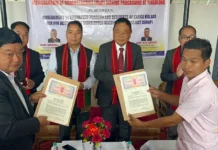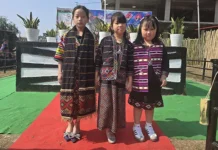Staff Reporter
ITANAGAR, 18 Jan: The Annual Status of Education Report (ASER)-2023 reveals that significant number of youths in the age group of 14 to 18 years in Arunachal Pradesh enrolled in formal education system lack basic reading and essential numeracy skills.
As per the survey report, about 34 per cent of the youths in the specified age range in Papum Pare district can’t read Class 2-level text in English fluently, while only 31.9 per cent could solve “3-digit by 1-digit problems.”
It was observed in the report that 87.6 per cent of the youths in the specified age group are enrolled in educational institutes and the percentage of youths not enrolled is 12.4. The percentages of males and females who are not enrolled in any formal education institution are 4 and 20.8, respectively.
The report, titled ‘Beyond Basics’, was released by NGO Pratham Foundation on Wednesday in New Delhi. It focused on the youths aged 14 to 18 years in rural India, an age group that was also the focus of ASER-2017.
The survey was conducted in 28 districts across 26 states. One rural district was surveyed in each major state, with the exception of Uttar Pradesh and Madhya Pradesh, where two rural districts were surveyed. In Arunachal, the survey was conducted in Papum Pare district by volunteers from the Hills College of Teacher Education.
Of those who could read at least a Class 1-level text, 69 per cent could read the text on a medicine packet and answer at least three out of the four questions about it.
Of those who could do at least subtraction, 51.4 per cent could do a task for managing a budget, 21 per cent could apply a discount, and 7.7 per cent could calculate repayment.
Overall, approximately 30 per cent could do the tasks of everyday calculations.
As per the report, 94.5 per cent of all youths in the district have a smartphone at home and know how to use it.
Over 70 per cent of those who can use a smartphone did at least one education-related activity, such as watching online videos related to studies, solving doubts, or exchanging notes, in the week prior to the survey, as compared to 87.3 per cent who used any social media. Around 70 per cent of the youths knew how to access its safety features, like blocking a profile, making a profile private, etc.
ASER is a nationwide citizen-led household survey that provides a snapshot of the status of children’s schooling and learning in rural India.
The ‘basic’ ASER collects information about enrollment in pre-school and school for children in the age group of 3 to 16 years, and assesses children aged 5 to 16 one-on-one to understand their foundational reading and arithmetic abilities.





